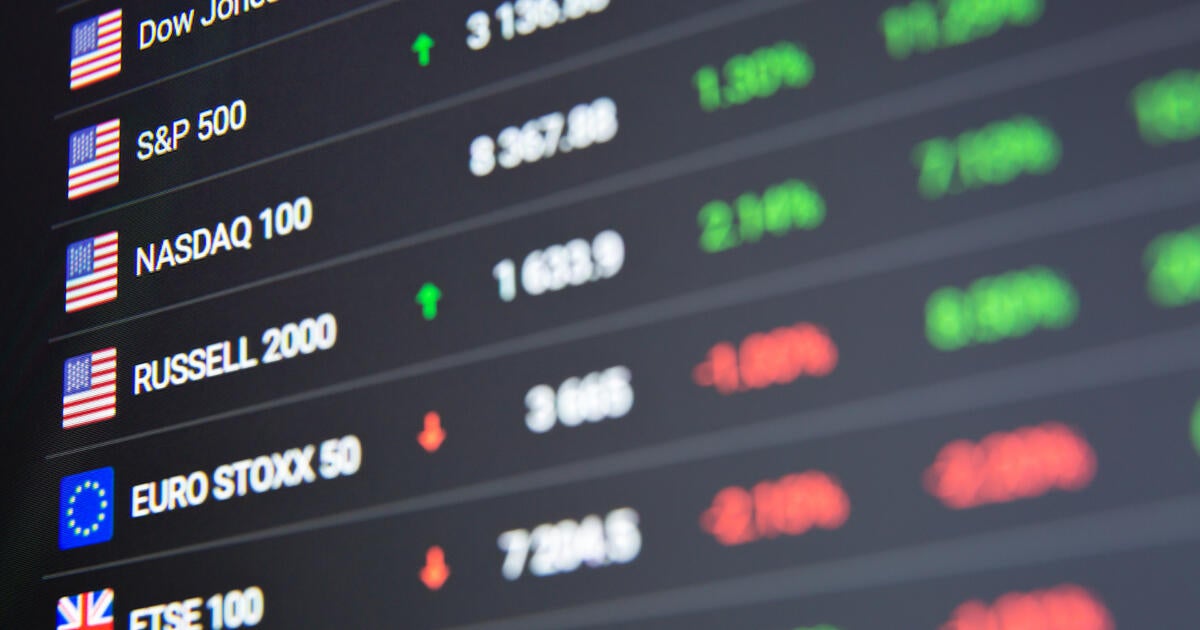As shoppers and buyers anxiously seek for telltale indicators of the place the financial system goes, amid wild swings within the stock market and plunging consumer sentiment brought about through President Trump’s overseas business coverage, a less-closely watched index is appearing indicators of bother up forward.
The Russell 2000, a inventory index made up of small-company shares, is down greater than 18% since its top in November when Mr. Trump was once elected. Whilst the index to begin with rose on optimism that the brand new management would create a extra business-friendly setting, the ones hopes had been briefly dashed through an escalating trade war, initiated through price lists imposed through Mr. Trump towards a few of our closest buying and selling allies.
Consequently, the small-cap index is now headed towards a undergo marketplace, outlined through a decline of 20% or extra from its most up-to-date prime.
“Some small caps just like the Russell 2000 had been outperforming the S&P 500 after the election, possibly at the idea that there was once going to be really extensive deal process, as a result of those corporations are much more likely to be got and merge than the biggest of the large-caps,” Daniel Hornung, former deputy director of the Nationwide Financial Council, instructed CBS MoneyWatch.
“There was once a way that there was once going to be deregulation and more straightforward setting for transactions to happen, however there is a large quantity of uncertainty striking over the financial system and markets at this time that makes it truly tough for transactions to occur,” Hornung defined.
With price lists corresponding to a 25% tax on steel and aluminum imports threatening worth hikes throughout a extensive spectrum of industries, the eye of small- and mid-size companies is not on enlargement however survival.
Canary within the coal mine
The Russell 2000 contains smaller corporations throughout a wide range sectors, and is broadly regarded as to be a benchmark for small U.S. shares. In contrast to the tech-heavy S&P 500, it’s not weighted towards a selected business.
For this reason, the index is extra delicate to adjustments within the financial system, in particular downturns, as a result of its corporations are smaller and extra uncovered to marketplace shocks than greater ones, for the reason that they perform on thinner margins and normally have upper borrowing prices.
“It is extra different on the sectoral stage, so it’s extra consultant of U.S. enlargement dynamics,” Skanda Amarnath, a macroeconomist and government director of Make use of The us, instructed CBS MoneyWatch.
One of the Russell 2000 corporations come with industrial jet engine corporation FTAI Aviation, grocery chain Sprouts Farmers Marketplace, plant-based meals corporation Past Meat, and language finding out device Duolingo.
No longer pointing to a recession
Whilst the Russell 2000 is simplest two share issues clear of getting into undergo marketplace territory, Financial institution of The us Analysis economists say it is not pricing in a recession, and so they nonetheless be expecting the financial system to develop this yr.
“Traditionally in recessions the Russell 2000 has offered off just about 40% on reasonable,” stated Jill Carey Corridor, head of U.S. small- and mid-cap technique at Financial institution of The us Analysis. “So it is not pricing in more than a 50% likelihood of a recession at this level.”
Nonetheless, small companies might be in retailer for heavy benefit losses.
In line with the levies lately in position on Canada, Mexico and China, and assuming retaliatory price lists, Financial institution of The us estimates that the income hit might be 3 times greater for small caps than for massive caps.
“Those corporations have a lot thinner margins, so a upward push in enter prices hurts them extra,” Carey Corridor stated.



